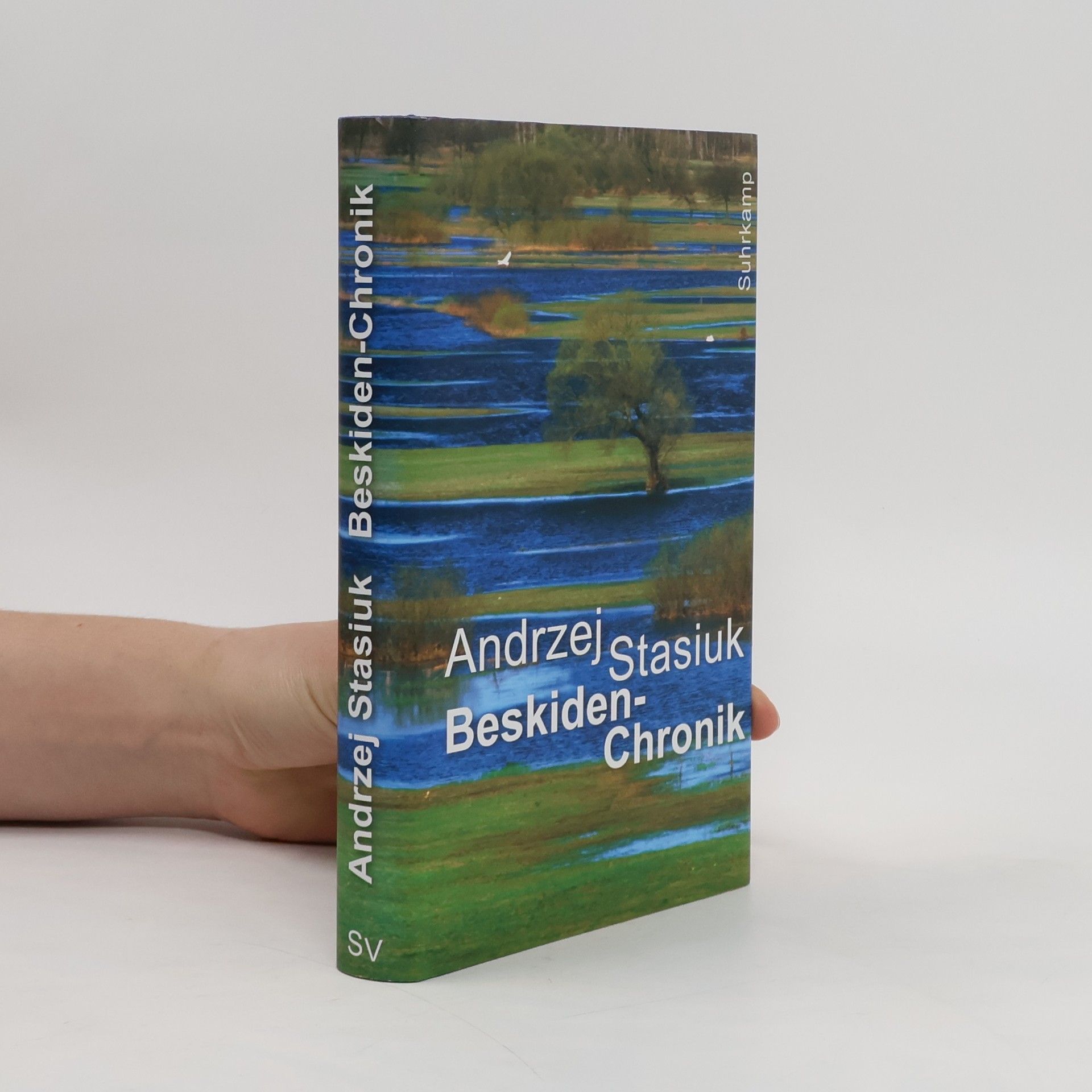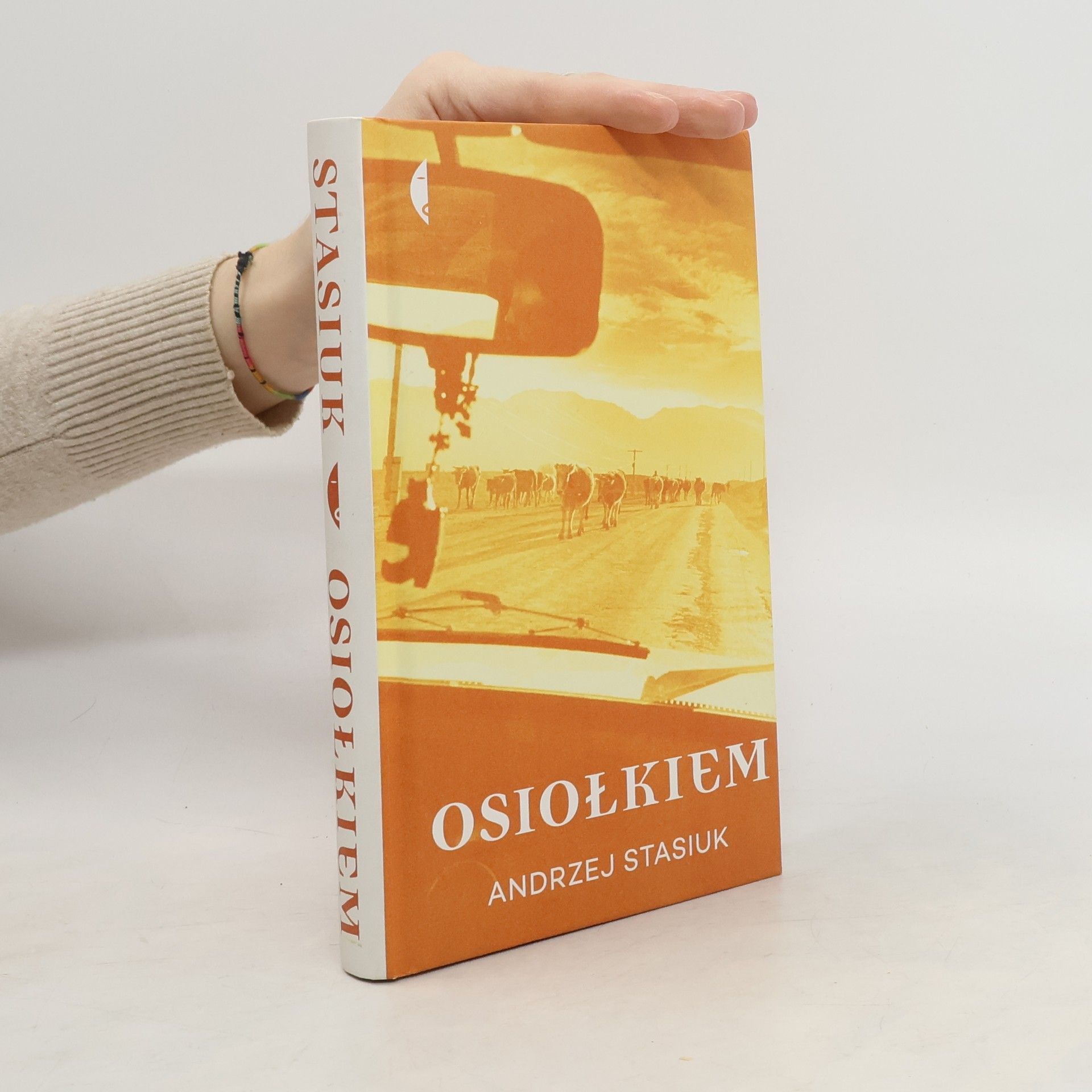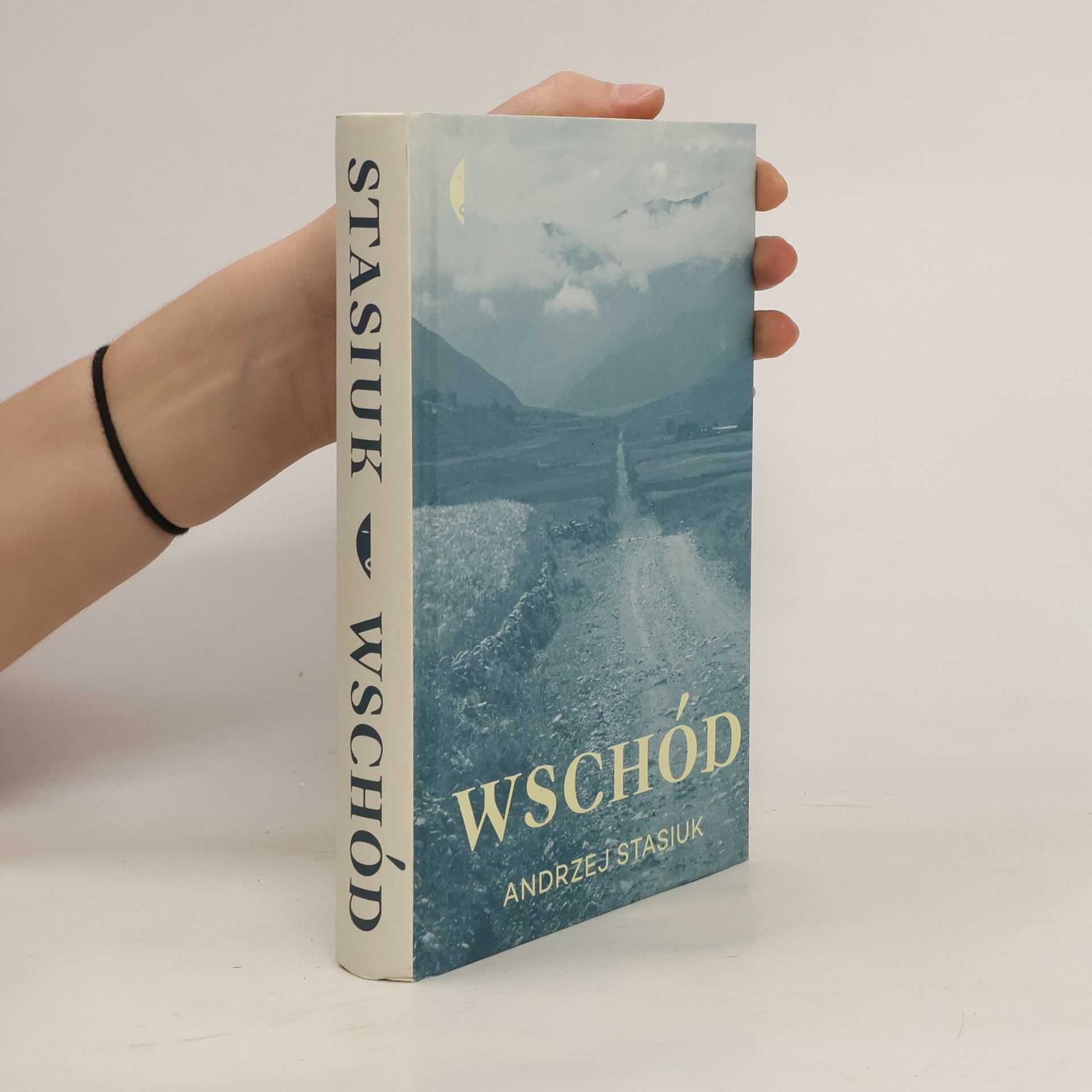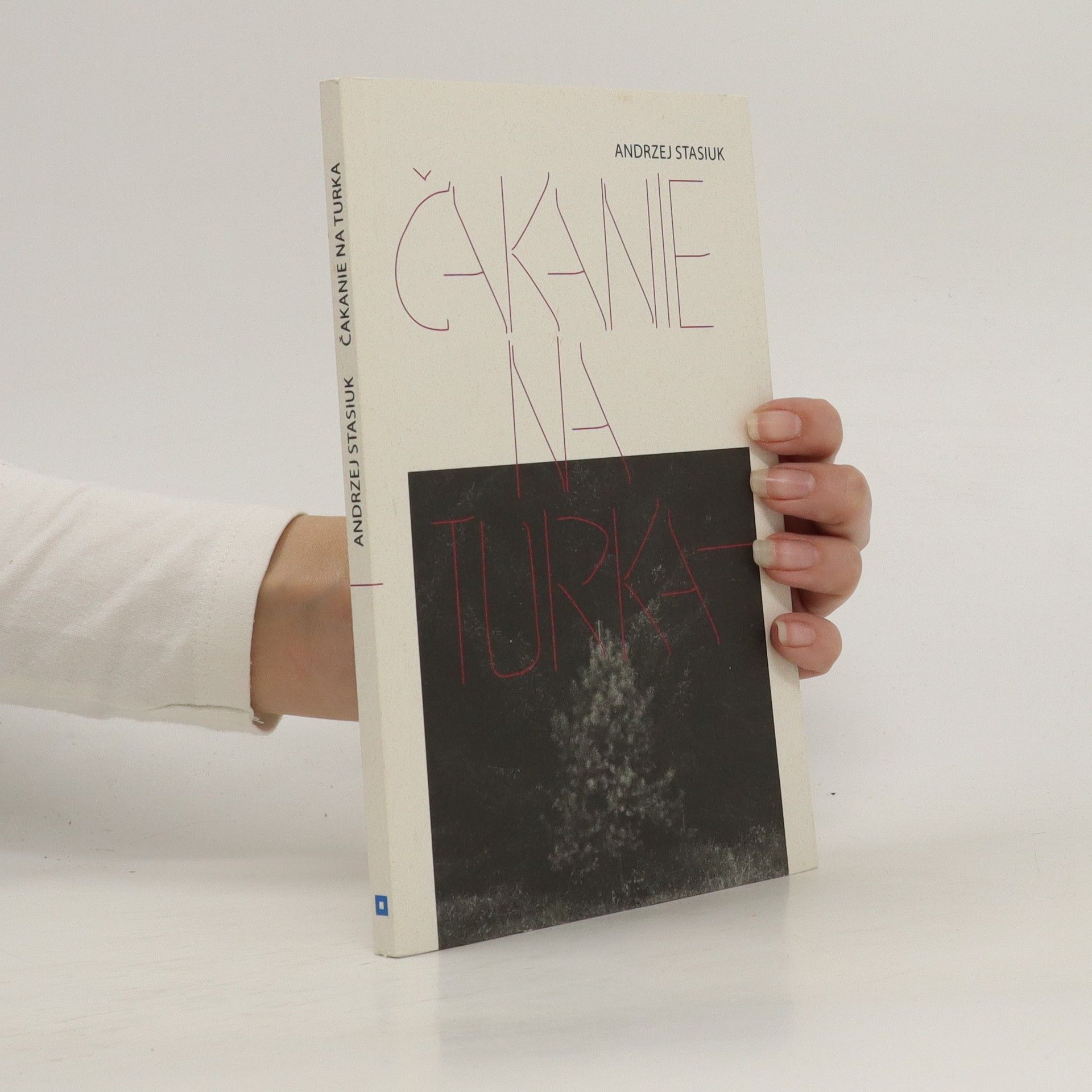O babce, która wierzyła w duchy, o starym psie, o pisarzu z Izdebek i o przyjacielu, z którym złaził Grochów i przejechał pół Polski Stasiuk pisze o umieraniu i namacalności życia, o materialności wspomnień, o bliskości śmierci i jej wiecznej niedostępności. Bury kot zwija się w kłębek w cieple stygnącego ciała starej suki, babka, cała w czerni, szczupła i spokojna, przechodzi do świata, który zawsze był obok, Guścio choć niewiele już może powiedzieć, złośliwie pluje pestkami. A przyjaciel, odlatując przez komin, przynosi zapach pociągu do Łupkowa, dzikich jabłoni na ulicy Makowskiej i chłodnej wiosny w portowym Piranie. Cztery opowiadania Andrzeja Stasiuka to boleśnie piękna opowieść o śmierci, o zwyczajnej kropce na końcu życia.
Andrzej Stasiuk Book order (chronological)
Andrzej Stasiuk is a leading contemporary Polish author whose works delve into the heart of Eastern Europe. His essays and travelogues explore the intricate relationship between East and West, capturing the region's reality with a distinct perspective. Following a tumultuous youth that included time in prison, Stasiuk debuted in 1992, swiftly establishing himself as a significant literary talent. His later writing, often set in the remote regions of southeastern Poland, is characterized by impressionistic descriptions and an atmosphere that resonates with readers globally.

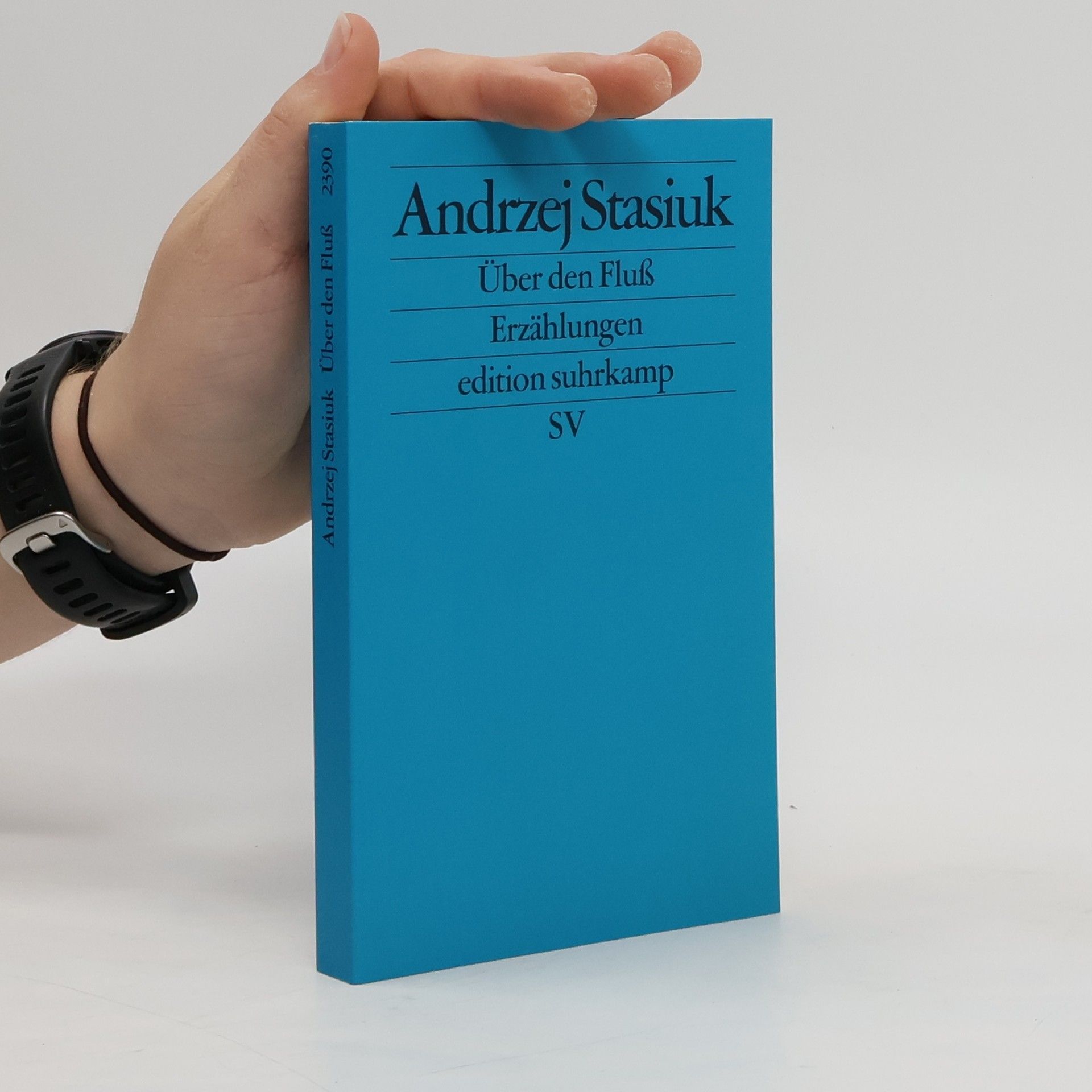



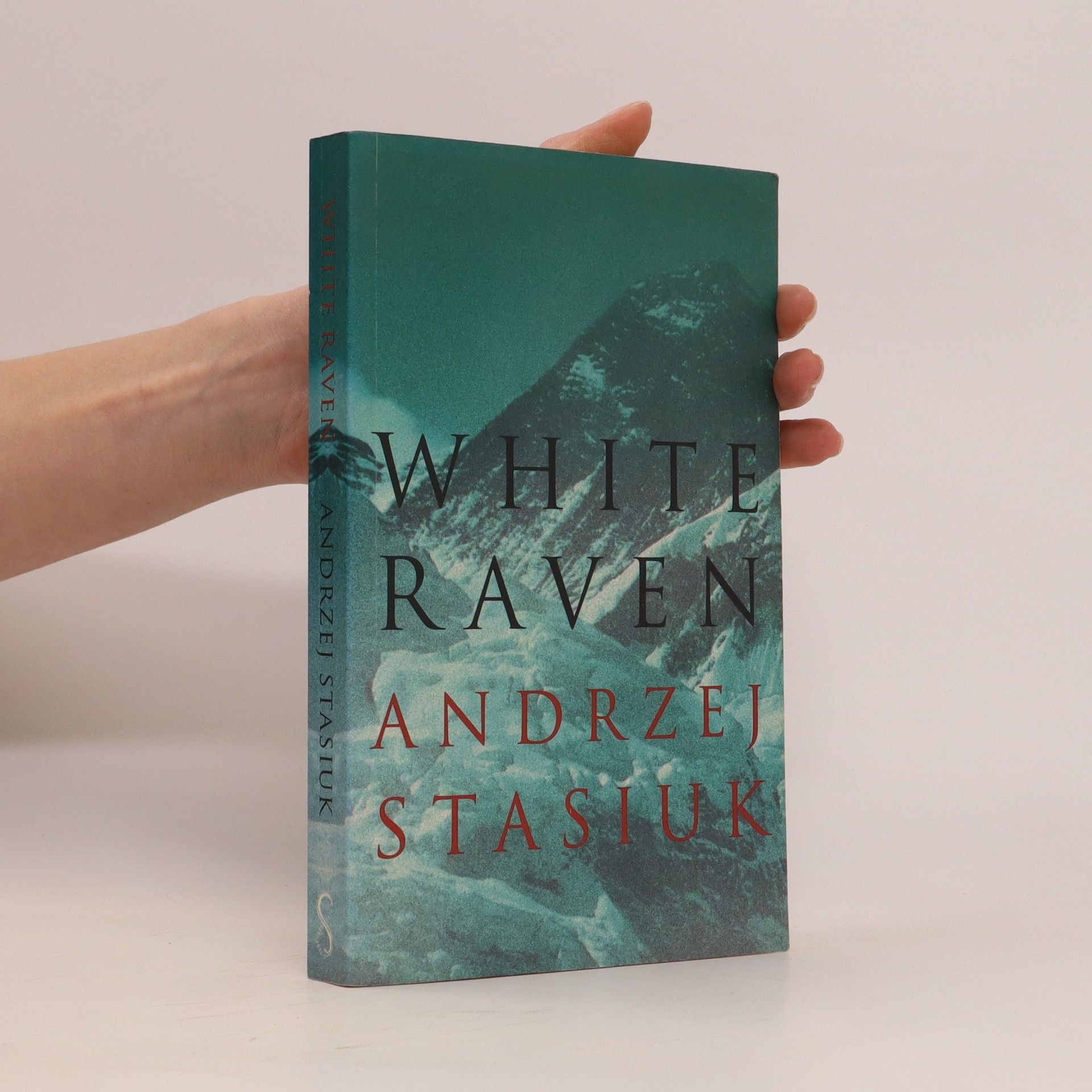

Gorący czerwiec 1941 roku. Jasne księżycowe noce, niskie bagienne łąki, cienisty sad i zimna żyła rzeki, która podzieliła świat na pół. Na jednym brzegu Niemcy, żelazny wąż czołgów, ciężarówek, maszyn. Na drugim Rosjanie. Pośrodku wiejski przewoźnik, który z jednego brzegu na drugi wozi nocą każdego, kto zapłaci. Żydowskie rodzeństwo, które w drodze do wyśnionej Ziemi Obiecanej, chowa się w stodole tuż obok kałuż świńskich wnętrzności. Chłopcy z partyzantki, wierzący jeszcze, że wojna jest przygodą, wykonują wyroki, których nie rozumieją. Ich dowódca czeka na rozkazy. Zanim nadejdą, każe liczyć czołgi i nad kolejnym butelkami bimbru, wśród roju much przekonuje, że już wkrótce będzie po kolana brodził we krwi wrogów. Wszyscy przychodzą do kobiety, przykucniętej, bosej, hardej. Czekają, upał mąci umysły. A pewien mały chłopiec widzi, słyszy i zapamiętuje to wszystko: grzmot nadlatujących samolotów, drżenie ziemi. Po latach narrator próbuje opowiedzieć historię, której nie opowiedział mu ojciec.
In der Beskiden-Chronik blickt Andrzej Stasiuk auf das heutige Polen und dessen Wandel. Ausgehend von seinem Heimatdorf reflektiert er in Feuilletons und poetischen Miniaturen über polnische und weltweite Themen. Stasiuk zeigt sich als scharfsinniger Beobachter, der auch Reisen und Natur in seinen Betrachtungen einbezieht.
Ukraina, Rosja, Azja.Narrator napotyka ludzi, duchy i policjant�w. Ale przede wszystkim opowiada o swojej miłości do samochod�w.Snuje sowizdrzalską elegię na odejście silnika spalinowego.
Życie to jednak strata jest
- 200 pages
- 7 hours of reading
Jeden z najwybitniejszych polskich pisarzy i najbardziej niezwykłych postaci życia literackiego, laureat Nike Andrzej Stasiuk w rozmowie-rzece z Dorotą Wodecką, dziennikarką „Gazety Wyborczej” i autorka książek „Mężczyźni rozmawiają o wszystkim” oraz „Polonez na polu minowym”.nOd trzech lat Dorota Wodecka nagrywa swoje rozmowy z pisarzem, które są zarazem opowieściami o jego życiu, jak i książkach, gdyż - jak mówi Stasiuk „Moje życie jest moim zawodem”. Rozmawiają więc o kobietach, miłości, podróżach, literaturze, Polsce, samochodach, Rosji, polityce, śmierci, Rosji i islamie. Dzięki Wodeckiej wyruszamy do Wołowca, gdzie Stasiuk osiadł, odwiedzamy jego owce i pisarską pracownię, ale przede wszystkim odbywamy podróż po jego pamięci i odwiedzamy miejsca, do których dotarł w trakcie swoich literackich podróży, od Albanii po rosyjską Czytę. nKsiążce towarzyszyć będą zdjęcia Adama Golca, który ilustrował m.in. ostatnią książkę Joanny Bator „Wyspa łza”
Der Stich im Herzen
Geschichten vom Fernweh
Kaum jemand versteht so viel vom Unterwegssein als Lebensform wie der polnische Schriftsteller Andrzej Stasiuk. Seine fünfzig Stücke kurzer Prosa über das Reisen spielen in den wenig besiedelten Gegenden an der polnisch-ukrainischen Grenze, in der sibirischen Steppe, sie entführen uns bis nach China und in die Mongolei. Ein Buch über entwurzelte Künstler aus der lemkisch-slowakischen Provinz (Andy Warhol und Nikifor aus Krynica), die Arm in Arm über den Broadway schlendern. Impressionen und Meditationen über das Ende der Sesshaftigkeit, eine Liebeserklärung an den unbetretenen, unbeschriebenen Raum, an die mongolische Steppe, die »reinste« Landschaft, wo es nichts gibt außer Himmel und Erde. Ein Brevier für erfahrungshungrige Leser, denen der Gedanke an eine Welt jenseits der eigenen einen Stich ins Herz versetzt.
Wschód
- 304 pages
- 11 hours of reading
Najnowsza książka Andrzeja Stasiuka to niezwykły zapis podróży na Wschód – podróży we wspomnienia do obrazów z dzieciństwa spędzanego u dziadków na Podlasiu i podróży tam, skąd wyszły oddziały Czyngis-chana, tam, gdzie historia jest jak geologia i tektonika: nieunikniona, nieprzewidywalna, miażdżąca, tam, gdzie lucyferycznym blaskiem świeci nowa potęga – do Rosji, Chin i Mongolii. To próba uchwycenia cienia Wschodu, który na nas pada. Opowieść o tęsknocie, pragnieniu i strachu. I o tym, jak umyka przestrzeń, a powraca pamięć.
Komédia o ľuďoch, ktorí snívajú o starých časoch.
Kurzes Buch über das Sterben
Geschichten
Andrzej Stasiuk, berühmt für seine Kunst, untergehende Orte und verschwindende Landschaften zu beschreiben, erzählt vier Geschichten über Abschied und Tod. Da ist Augustyn, der Schriftstellerkollege, der das Gedächtnis verloren hat und gelähmt im Pflegeheim liegt. Oder Olek, der vertraute Jugendfreund, der auf einer Reise nach Budapest damit herausrückt, dass er bald sterben wird. Ihr Sterben frisst sich ins Leben hinein. Der Tod trägt nicht mehr, wie noch in der Kindheit, das gutmütige Gesicht der Großmutter, die einfach hinüberging in eine andere Wirklichkeit. Verstörend ist seine Präsenz: dass er Menschen und auch Tiere im Griff hat, die noch warm und vertraut neben einem leben. Stasiuks Erzähler schaut genau hin, konfrontiert sich mutig mit einer Erfahrung, die fast jeder einmal machen wird.
Tři hry
- 151 pages
- 6 hours of reading
Tři hry předního současného polského prozaika, esejisty a dramatika spojuje stejné téma: věčný střet divokého a necivilizovaného Východu s bohatým a znuděným Západem. V Noci transplantují německému obchodníkovi srdce polského zloděje aut. Obchodník se bojí divokého barbarského srdce, srdce nemůže vydržet v kleci západního těla. A do všeho vnáší zmatek zlodějova duše, která s jeho už bezduchým tělem vede spor... Temný les se odehrává v blízké budoucnosti, kdy za většinu obyvatel Západu pracují gastarbeitři. Věčný střet poddaných a pánů, chudých a bohatých, se zde mění v groteskní sci-fi, ironicky glosující dnešní stav západní civilizace. Autor nás baví burleskně zveličenými stereotypy, živým, nespisovným jazykem a černým humorem a přitom neskrývá, že stojí na straně obhroublých, ale lidských a upřímných „výchoďáků". Čekání na Turka je situováno na polsko-slovenskou hranici, kde bývalý pohraničník v důchodu, prodavačka alkoholu a chór pašeráků nostalgicky a rozzlobeně vzpomínají na doby, kdy byl hraniční přechod důležitým místem. I zde si Stasiuk pohrává s národními stereotypy, komplexy a s problematickými otázkami naší východoevropské i evropské identity. Publikace obsahuje informace o autorovi a studii o jeho díle, kterou napsal Michał Tabaczyński.
